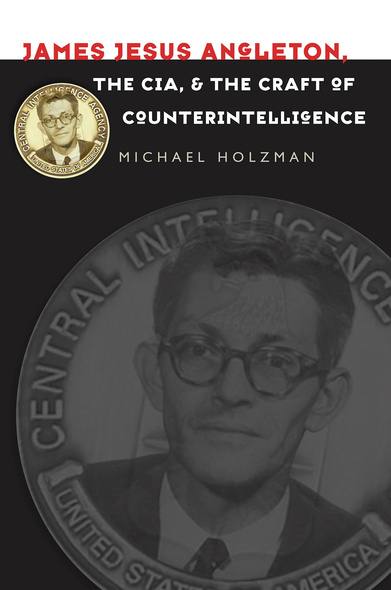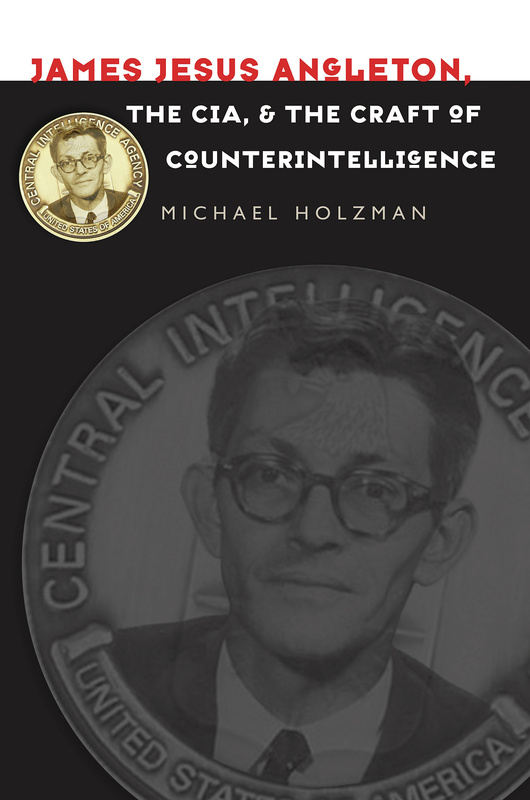Our shopping cart is currently down. To place an order, please contact our distributor, UTP Distribution, directly at utpbooks@utpress.utoronto.ca.
James Jesus Angleton, the CIA, and the Craft of Counterintelligence
University of Massachusetts Press
As chief of counterintelligence for the Central Intelligence Agency from the early 1950s to the early 1970s, James Jesus Angleton built a formidable reputation. Although perhaps best known for leading the agency's notorious "Molehunt"—the search for a Soviet spy believed to have infiltrated the upper levels of the American government—Angleton also played a key role in the U.S. intervention in the Italian election of 1948, in Israel's development of nuclear weapons, and in the management of the CIA's investigation of the assassination of John F. Kennedy. He later led CIA efforts to contain the Vietnam-era antiwar movement, including the campaign to destroy the liberal Catholic magazine Ramparts .
In this deeply researched biography, Michael Holzman uses Angleton's story to illuminate the history of the CIA from its founding in the late 1940s to the mid-1970s. Like many of his colleagues in the CIA, James Angleton learned the craft of espionage during World War II as an officer in the Office of Strategic Services (OSS), where he became a friend and
protégé of the British double agent Kim Philby. Yet Angleton's approach to counterintelligence was also influenced by his unusual Mexican American family background and his years at Yale as a student of the New Critics and publisher of modernist poets. His marriage to Cicely d'Autremont and the couple's friendship with E. E. and Marion Cummings became part of a network of cultural connections that linked the U.S. secret intelligence services and American writers and artists during the postwar period.
Drawing on a broad range of sources, including previously unexamined archival documents, personal letters, and interviews, Holzman looks beneath the surface of Angleton's career to reveal the sensibility that governed not only his personal aims and ambitions but those of the organization he served and helped shape.
In this deeply researched biography, Michael Holzman uses Angleton's story to illuminate the history of the CIA from its founding in the late 1940s to the mid-1970s. Like many of his colleagues in the CIA, James Angleton learned the craft of espionage during World War II as an officer in the Office of Strategic Services (OSS), where he became a friend and
protégé of the British double agent Kim Philby. Yet Angleton's approach to counterintelligence was also influenced by his unusual Mexican American family background and his years at Yale as a student of the New Critics and publisher of modernist poets. His marriage to Cicely d'Autremont and the couple's friendship with E. E. and Marion Cummings became part of a network of cultural connections that linked the U.S. secret intelligence services and American writers and artists during the postwar period.
Drawing on a broad range of sources, including previously unexamined archival documents, personal letters, and interviews, Holzman looks beneath the surface of Angleton's career to reveal the sensibility that governed not only his personal aims and ambitions but those of the organization he served and helped shape.
A smart and engaging discussion of James Jesus Angleton and his role as a central figure in the CIA from its origin until the mid-1970s. Doing research on someone who has dedicated his personal and professional life to concealment is not easy, yet Michael Holzman has done an admirable job of reconstructing Angleton's story. Perhaps its most valuable contribution is its elucidation of Angleton's involvement in illegal programs of domestic surveillance, an issue of obvious importance made more significant by the actions of the current presidential administration.'—Robert D. Dean, author of Imperial Brotherhood: Gender and the Making of Cold War Foreign Policy (University of Massachusetts Press, 2001)
'Holzman's book is a major history of chilling impact, and a long, rewarding odyssey through the labyrinth of counterintelligence. . . . His cast is huge and his explorations far reaching.'—ForeWord
'This is seriously good history, as well as a biography; Holzman is a very good writer, with a style somewhere between the academic and the journalist, and this was a pleasure to read.'—Lobster 56
'Even those Americans who actually lived during the years when the FBI and the CIA were secretly and recklessly tracking 'subversives,' did not know the depth and range of that assault on the Bill of Rights.Finally, in an unprecedentedly penetrating and fully documented exposé of that dark era of our history, Michael Holzman in James Jesus Angleton, the CIA, and the Craft of Counterintelligence, has sounded an acutely contemporary warning of how the further plans by J. Edgar Hoover and others high in the government for mass roundups of 'persons of interest' can actually happen through the far more advanced surveillance and interconnected databases of the present and future.The end of the Bush-Cheney regime of secret laws; corrosion of the separation of powers; and a steadily expanding surveillance society will not prevent the real-time probability in another 9/11 or its equivalent of a much more pervasive invasion of our Fourth and First Amendment rights than J. Edgar Hoover and the CIA's James Jesus Angleton even envisioned.To know what the United States government was capable of doing to disable the Constitution—while also setting up the machinery of mass confinement of Americans suspected of endangering national security—is to be forewarned of what George Orwell modestly prophesied before advancing surveillance technology eclipsed his imagination.In this book, Michael Holzman is a Paul Revere of this time that is also time past and time future.'—Nat Hentoff, author of The War on the Bill of Rights and the Gathering Resistance and the forthcoming Is This America?
'Holzman's brisk, uncluttered book offers valuable access to previously untapped material on Angleton, who became the first head of the Counter-Intelligence Staff of the CIA. In particular, it makes incisive use of his years as a student of English at Yale and the influence of him on the New Critics and modernist poets of his day.'—The Times Literary Supplement
Michael Holzman, an independent scholar, holds a PhD in literature from the University of California, San Diego.





